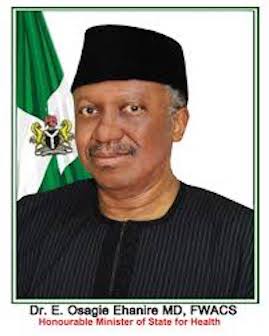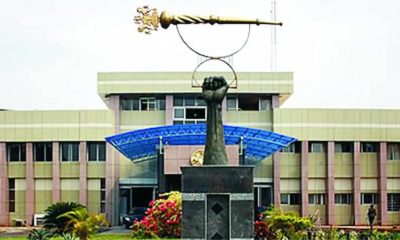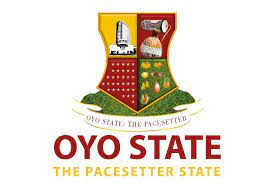Health
PCN Shuts Down 387 Pharmacies, Patent Stores in Benue

From Chris Gaga, Makurdi
Forty-four (44) Pharmacies and 343 Patent Medicine Shops totalling 387 medicine premises have been sealed in Benue State by Pharmacist Council of Nigeria(PCN).
Accordingly, the PCN is calling on the general public to safeguard themselves from patronizing quacks by always asking for the ‘registration status of facilities’ where they access their medicines as well as request for the current licenses issued by pharmacists Council of Nigeria from any pharmaceutical outlet.
The Director, Inspection and Monitoring, Pharmacist Council of Nigeria(PCN), Mrs Anthonia Aruya disclosed this in Makurdi at a Press Conference to mark the end of a one week inspection and monitoring exercise embarked upon by the council across the State.
Mrs Aruya who noted that the team visited about 556 premises disclosed that 16 premises comprising of 3 pharmacies and 13
Patent and Proprietary Medicine Vendors, PPMV shops were issued compliance directives for various offences ranging from “poor handling of controlled substances, sale and dispensing of ethical and prescription drugs without the supervision of a pharmacist, unhygienic environment, poor documentation among others, in the interest of public safety.
The Director of the inspection and monitoring team stated that the council was in Benue State in continuation of its activities aimed at sanitizing the system for better pharmaceutical services delivery to the good people of the state and nation at large
She said in line with the PCN ACT Cap P17; LFN, 2005 and Nigeria Drugs Distribution Guideline(NDDG), the enforcement exercise was geared at streamlining the drug distribution value chain to promote the provision of safe, effective and quality medicines distribution along registered and currently licensed premises.
“Registered premises are inspected and re-inspected in line with the principles of Good Pharmacy Practice(GPP) and are made to meet up with minimum acceptable standards before they are licensed to operate those premises. Premises opened at will without recourse to the council cannot be guaranteed to have standards that will maintain the integrity of the products within such facilities,” Aruya.
Mrs Aruya noted that medicines, if not properly handled and administered can be injurious to the end users, insisting that premises found operating above their scope of operation such as sale and dispensing of ethical products without the presence of superintendent pharmacists or handling of controlled medicines by non pharmacists was operating in violation of the PCN law.
“On this regard, Pharmacist is well trained and experience to handle all category of medicines while the Patent and proprietary Medicine Vendors(PPMV) on the other hand are only to handle over the counter medicine(OTCs) which has been proven to have good safety margin,” She noted.
While appreciating the State Ministry of Health, Security agencies and the media for continued collaborations, the Director urged people interested in medicine business to approach the PCN national headquarters and their zonal/state offices for proper guidance.
She reassured the public of the sustained workings of the council to sanitize drug distribution value chain in the interest of public safety, even as she solicit for further cooperation from the public.
Our Correspondent observed that so many medicine stores were seen sealed up especially in makurdi metropolis since Monday this week.
Health
UNICEF Preaches Six-month Maternity Leave Policy to Private Sector

The UNICEF Chief of Field Office in Kaduna, Dr. Gerida Birukila has appealed to the private sector to adopt a six-month maternity leave policy to support breastfeeding mothers.
Birukila made the appeal on Thursday at a “Youths Lead the Circle of Support for Breastfeeding” event, organised in Kaduna as part of the activities marking this year’s World Breastfeeding Week.
She said that working mothers face challenges in breastfeeding exclusively due to the work environment and the lack of support.
She, therefore, said a six-month maternity leave policy would enable mothers to stay at home and breastfeed their babies without interruption.
Birukila said that exclusive breastfeeding for six months can significantly reduce infant mortality rate and improve cognitive development.
“Breast milk contains all the necessary nutrients for infants, and exclusive breastfeeding can boost infants’ immune system.
“Proper nutrition is crucial for the health and development of infants.
“A well-nourished mother can provide her baby with the necessary nutrients for growth and development.
“Pregnant women should eat well, take essential supplements and micronutrients, and attend antenatal care,” she said.
Birukila emphasised the importance of exclusive breastfeeding for the first six months of a child’s life, adding that it would promote the health and wellbeing of both mothers and infants.
She said that the State Government had set an example by providing a supportive work environment for breastfeeding mothers by establishing creches in some Ministries, Departments and Agencies (MDAs).
“The state’s six-month paid maternity leave policy and crèches in MDAs are examples of best practices that can be adopted by the private sector,” she said.
The State’s Nutrition Officer, Ramatu Haruna, also highlighted the state’s support system for breastfeeding mothers.
“The state has a six-month paid maternity leave policy and crèches in MDAs, enabling working mothers to balance work and breastfeeding responsibilities,” she said.
Haruna said that the private sector could play a significant role in promoting breastfeeding.
She said that employers could provide paid maternity leave, flexible working arrangements, and other benefits that support breastfeeding mothers, helping them balance work and breastfeeding responsibilities.
She also said that the benefits of exclusive breastfeeding for six months are numerous, including reduction of infant mortality rates, improving cognitive development, and boosting the immune system.
Speaking further, Haruna said that breast milk contains all the necessary nutrients for infants, and exclusive breastfeeding can promote healthy growth and development.
She also said that employers could provide other benefits that support working mothers, including crèches or childcare services, flexible working arrangements and other benefits that support work-life balance.
“By providing these benefits, employers can help mothers balance work and family responsibilities,” she said.
Health
Nigeria’s Fight To Eliminate Hepatitis In Prisons

By Abujah Racheal
In Nigeria, estimates from the National AIDS, STIs and Hepatitis Control Programme (NASCP) show that 8.1 per cent of adults aged 15–64 live with hepatitis B, and 1.1 per cent with hepatitis C.
On a worrisome note, more than 80 per cent of those infected are unaware of their status, enabling the virus to spread silently, in homes, hospitals, and correctional facilities.
Public health experts say correctional centres are among the highest-risk environments for viral hepatitis due to overcrowding, unsafe medical practices, limited access to testing, and stigma.
According to the World Health Organisation (WHO), viral hepatitis, particularly types B and C, is a global public health threat that kills approximately 1.
3 million people each year, making it second only to tuberculosis among infectious diseases.In spite of its deadly toll, hepatitis is often overlooked, especially in low- and middle-income countries like Nigeria.
More than 91 million people in the WHO African region live with hepatitis B or C, representing 26 per cent of the global burden.
Shared razor blades, contaminated injection equipment, and poor sanitation all contribute to the spread.
When 34-year-old Malam Musa Danladi was arrested, tried and sentenced in 2022, he knew prison would be tough; but what he did not expect was that a place of punishment would become a place of diagnosis, for a disease he had never heard of.
“They called me to the clinic one morning; I was confused; the nurse said I had hepatitis B; I did not even know what that meant.”
He is one of thousands of Nigerians living with viral hepatitis, a disease that often shows no symptoms until it causes irreversible damage to the liver.
Danladi is also among the few who discovered their status within prison walls.
“We used to share everything, razors, clippers, even toothbrushes; Nobody told us we were at risk.
“Incarcerated people face a triple burden: poverty, stigma, and disease, with few resources or pathways to care,” Danladi said.
In a bid to reverse this trend, the Nigerian government, in July, unveiled Project 365, a year-long national campaign to test, treat, and vaccinate millions of Nigerians for hepatitis, including those in prison settings.
The unveiling coincided with World Hepatitis Day, with the theme: “Hepatitis Can’t Wait- Test. Treat. Eliminate.”
According to Prof. Muhammad Ali Pate, Coordinating Minister of Health and Social Welfare, Nigeria is losing between ₦10.3 trillion and ₦17.9 trillion annually to hepatitis-related productivity and healthcare costs.
“Project 365 is about saving lives and saving our economy,” he said.
Pate said that the project 365 aimed to screen every federal constituency in Nigeria, totaling 360, and to deliver curative treatment for hepatitis C as well as vaccination for hepatitis B.
He said it also sought to expand outreach to prisons, internally displaced persons (IDP) camps, rural communities, and other underserved regions.
The minister said it would ensure sustainable financing for testing and treatment, and the initiative established the Viral Elimination Fund (VEL).
Additionally, he said that the project 365 would promote local production of hepatitis diagnostics and medications, supported by tax incentives and regulatory reforms, to reduce reliance on imports.
At Kuje Medium Security Custodial Centre, a pilot hepatitis programme under the Viral Hepatitis Action in Correctional Services screened 830 inmates between December 2024 and June 2025.
Dr Ibrahim Ehizogie, a clinician with the Nigerian Correctional Services, said that many inmates were already infected with the disease while in custody.
Ehizogie said that the programme was now being scaled across Nigeria’s six geopolitical zones, with a target to reach all 300 custodial centres in the country.
However, experts warn that without continued funding, education, and policy enforcement, these gains may be short-lived.
According the 2024 INHSU Global Guideline on the Elimination of Hepatitis C in Prisons, incarcerated individuals have the same right to healthcare as the general population, and that denying hepatitis services in custody violates international human rights standards.
The guideline recommends that inmates should be tested and initiated on treatment within seven days of incarceration.
It also emphasises the integration of harm reduction services, such as safe injection practices and opioid substitution therapy, to reduce transmission.
Furthermore, the guideline advocates for peer-led education and community-based screening models to increase uptake and reduce stigma, and stress the importance of ensuring continuity of care upon release, so that individuals can maintain their treatment and health outside prison walls.
Dr Mya Ngon, WHO Team Lead for Communicable and Non-Communicable Diseases, commended Nigeria’s efforts.
Ngon said that screening must be linked to treatment, and treatment must be linked to continuity of care, even after prison.
Since his release, Daladi has become a community advocate, telling others about hepatitis, its transmission, and the importance of testing.
“I did not die in prison; so, I want to use my voice; people need to know it is not a death sentence; you can treat it; you can live; but stigma remains.
“Some people say I brought prison sickness home; some would not even shake my hand,” he said.
According to him, at present, he works in his community to support reintegration and health education, urged the government to expand outreach to ex-inmates and low-income communities.
In spite of the progress of Project 365, experts identify critical gaps in Nigeria’s hepatitis response; they say female inmates and pregnant women in custody are often excluded from routine hepatitis screening, leaving a critical gap in care.
Prof Taiwo Lateef, Professor at ABU and Africa Lead for Lifeline International, said that harm reduction services, such as access to sterile injecting equipment or safe drug treatment options, were largely absent in correctional centres.
In many cases, Lateef noted that the continuity of treatment after release remained uncertain, making long-term management of the disease difficult.
He said that youth offenders and first-time detainees typically received little to no education on hepatitis prevention, increasing their vulnerability.
Lateef said that Nigeria did not have a national hepatitis registry for prisons, making it challenging to track disease prevalence, monitor treatment coverage, or evaluate outcomes in custodial settings.
Dr Adebola Bashorun, National Coordinator for NASCP, said that without structured data and legal protections, prison health reform would remain incomplete.
Bashorun said that Nigeria’s hepatitis elimination strategy was ambitious and commendable.
He said that success would require multisectoral partnerships, political will, and a people-first approach.
According to, Dr Titilola Munkail, Technical Officer at Africa CDC, one cannot talk about ending hepatitis if one ignores people behind bars.
Munkail said that prisons were not separate from public health.
“They are central to it,” he said.
As Nigeria races toward the 2030 elimination goal, stakeholders urge the government, civil society, and citizens to act.
They say there is need for the government to institutionalise hepatitis services in all correctional facilities and primary healthcare centres (PHCs) to ensure consistent and equitable access to care. (NANFeatures)
| ReplyForwardAdd reaction |
Health
CDC Commends Delta State for Exemplary HIV Programme Management

From Francis Sadhere, Delta
The United States Centers for Disease Control and Prevention (CDC) has lauded the Delta State Government for its outstanding performance in managing HIV programmes, describing the state as a model of proactive leadership and commitment to health system ownership.
Deputy Director of Programmes at the US CDC, Dr.
Jerry Gwamna, made the commendation during a courtesy visit to the Delta State Commissioner for Health, Dr. Joseph Onojaeme, in Asaba.According to Dr. Gwamna, Delta State has continued to demonstrate strong leadership and a sense of responsibility in driving HIV interventions and other health initiatives.
He noted that the state’s collaboration with key partners has yielded significant progress.“We have truly been happy engaging Delta State,” he said. “With joint plans and collaboration with lead partners, we’ve seen great progress. The state’s proactive approach and willingness to take ownership of its health programmes is commendable.”
Dr. Gwamna hinted that the CDC is optimistic about deepening its partnership with Delta State, especially in light of the remarkable progress made.
He also suggested that the timeline for transitioning full programme responsibility to the state, originally set for 2030, could be fast-tracked due to evolving priorities in the current US administration.
In his response, Dr. Joseph Onojaeme projected that Delta State would be among the pioneering states in Nigeria to fully take charge of health programmes previously sponsored by the Federal Government and international partners.
He explained that the move is part of the Oborevwori administration’s broader plan to enhance healthcare delivery and ensure the sustainability of vital health interventions.
“The Governor, Rt. Hon. Sheriff Oborevwori, is committed to improving the health and well-being of Deltans and is not leaving the implementation of health programmes solely to partners,” Dr. Onojaeme said.
He praised the contributions of the CDC and the Excellence Community Education Welfare Scheme (ECEWS), noting that their interventions have positively impacted the lives of citizens across the state.
“We are excited about the future of our collaboration. These programmes have helped combat and prevent the spread of diseases, and we are determined to consolidate on these gains,” the Health Commissioner added.
The CDC visit signals growing international recognition of Delta State’s commitment to health reforms and its resolve to achieve self-sufficiency in healthcare delivery.
| ReplyForwardAdd reaction |





























